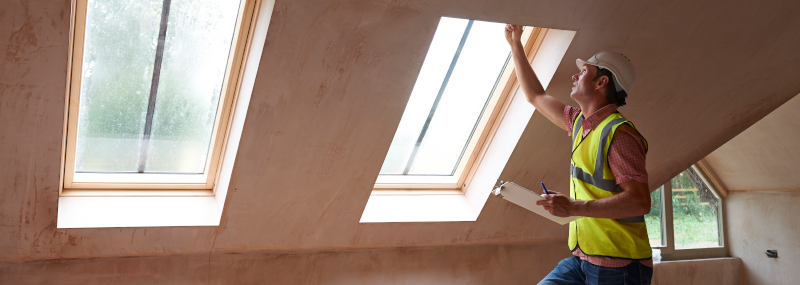A home inspection is meant to check the overall condition of a property, to make sure the house has no significant issues like:
- Signs of leaks and water damage
- Issues that threaten the home's foundation and structural integrity
- Damage to the roof
- Problems with the home's electrical system, such as faulty wiring
- Plumbing issues such as corroded or leaking pipes
- Heating, ventilation, and air conditioning (HVAC) system age and functionality
The buyer’s offer often includes a home inspection contingency clause, with the inspection usually happening after the seller accepts the offer and before the purchase and sale agreement1 The home inspector will issue a report to the buyer highlighting any problems they find during the inspection.
What fixes are mandatory after a home inspection?
In addition, based on what the home inspector finds, the buyer may request repairs. Cosmetic issues and normal wear usually don’t need to be fixed, but all potential issues and repairs are open to negotiation.2
Many fixes may depend on the type of market you’re in—for example, in a seller’s market a seller will have more power to reject requests for minor repairs.
Seller: Can you prepare for a home inspection?
- Heating, ventilating, and air conditioning (HVAC). A dated furnace or faulty AC unit can derail a home sale, particularly in the late stages of the process when it may cost you money on the sale price. Most HVAC systems will include a tag showing the last date it was serviced. If yours hasn’t been serviced recently, consider calling a professional for maintenance. Save the invoice or ask the service provider for a letter confirming that everything is working properly.
- Appliances. Home inspectors will typically check that all appliances are functioning. If the fridge is making a loud noise, the dishwasher is leaking, or the washing machine has a funny smell, odds are your buyer will find out. Be sure to take care of any issues ahead of time.
- Electric power. Electrical issues are commonly flagged by inspectors, be sure to have your wiring checked out by a qualified electrician. Some of the potential repairs could be minor, like missing wire nuts, open or damaged junction boxes, or faulty light switches or outlets. Also, check that your circuit breaker has sufficient amps for your home—100 amps is recommended, although newer and larger homes may require larger amps.
- Plumbing. Minor plumbing issues like leaks around faucets or toilets can be fixed inexpensively by replacing worn out parts, such as a faucet’s washers or a toilet’s wax ring. You can find do-it-yourself tutorials online. For more complex problems like snaking clogged drains or replacing damaged pipes, you may need to hire a licensed plumber, which may be costly, but most likely cheaper than costing you a potential buyer.
- Roof issues. Inspectors generally don’t miss roof damage, especially roofs that need to be replaced and this can affect your sales price. However, some roof issues, such as minor leaks during rainstorms, don’t necessarily mean a brand-new roof is needed. Replacing damaged weather stripping and shingles can often address the problem—and cost significantly less than a new roof.
Home inspection checklist
- Keep receipts handy from all prior maintenance or routine services
- Clear clutter from basement, attic, or other spaces to allow access
- Make sure the electrical panel, furnace, and water heater are accessible
- Find someone to watch pets during the inspection
- Make sure light bulbs are working
- Run water in every sink and bathtub to check for clogs
- Replace filters in the HVAC system
- Slope dirt away from exterior foundation to avoid water issues
- Repair cracked windows and broken screens
- Address any bugs with spray or professional extermination
- Cap unused gas lines, chimneys, and flues to prevent debris and clogging
- Trim trees that are touching or close to the roof


